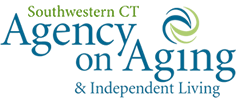Staying In Your Home Overview
There are more people over age 65 today than 10 years ago, according to statistics from the U.S. Department of Health and Human Services. By 2040, the agency estimates there will be about 82.3 million elderly Americans, more than twice as many as there were in 2000.
Overwhelmingly, nearly 90 percent of those over age 65 want to stay in their home and community for as long as possible, according to research by the National Conference of State Legislatures with AARP Public Policy Institute.
The driving force to remain in their home is to preserve their independence and maintain the connection to their community. However, many people make the mistake of waiting too long to make changes to that facilitate healthy aging.
Sometimes its confusing understanding roles. Below are some descriptions.
Adult Day Care
Adult Day Care Centers provide a variety of health, social, recreational and related support services.
Chore
heavy indoor or outdoor work or household tasks provided to individuals who are unable to do these tasks for themselves because of frailty or other factors. Services are provided in order to allow the person to maintain a healthy and safe home environment.
Companion
home-based supervision and monitoring activities including accompanying individuals to medical appointments, recreational activities, social appointments, reading to an individual, providing monitoring and companionship to ensure the highest quality of life and safety of the individual.
Home Health Aide (HHA)
hands-on personal care such as assistance with bathing, dressing, grooming, changing of bed linens, assistance with feeding, ambulation, assistance with transferring and toileting.
Homemaker (HMK)
general household activities provided in the home to assist or instruct an individual in managing a household. Includes: changing linens, dishwashing, light housekeeping, laundry, meal planning and preparation and shopping. (No hands on care.)
Home Repair
programs predominately offered by non-profit agencies who recruit community volunteers to do home repairs to low income elderly households at certain times during the year.
Personal Care Assistance Program (PCA)
is a Medicaid Waiver Program that enable individuals with disabilities to live independently in the community as an alternative to living in an institution. A key program requirement is that the participant be able to independently hire, monitor and manage their PCA staff members.
Electronic Alert System
in-home, twenty-four hour electronic alarm system activated by a signal to a switchboard which provides the individual with immediate help in the event of a medical, emotional or environmental emergency.
Respite
provides short-term relief for a family caregiver caring for a loved one to help alleviate some of the stresses of caregiving. Respite can be either in-home services such as a companion, HHA, HMK, or can be in-patient at an assisted living or skilled nursing facility.
Telephone Reassurance
provides telephone or personal contact at a prearranged time for participants who live alone. It ensures their health and safety, assures them that help is available if and when needed, and provides community contact over a sustained period of time.

